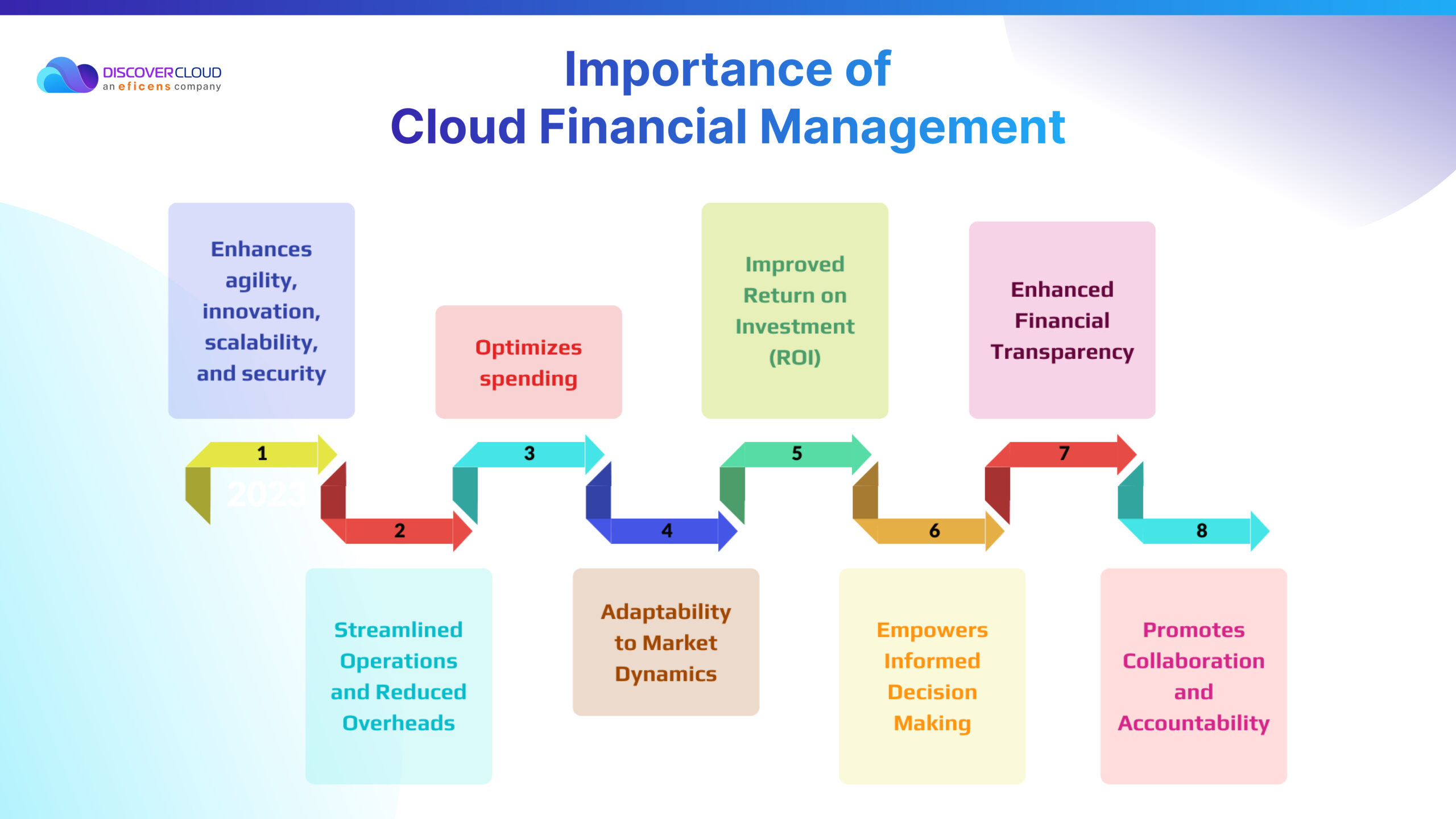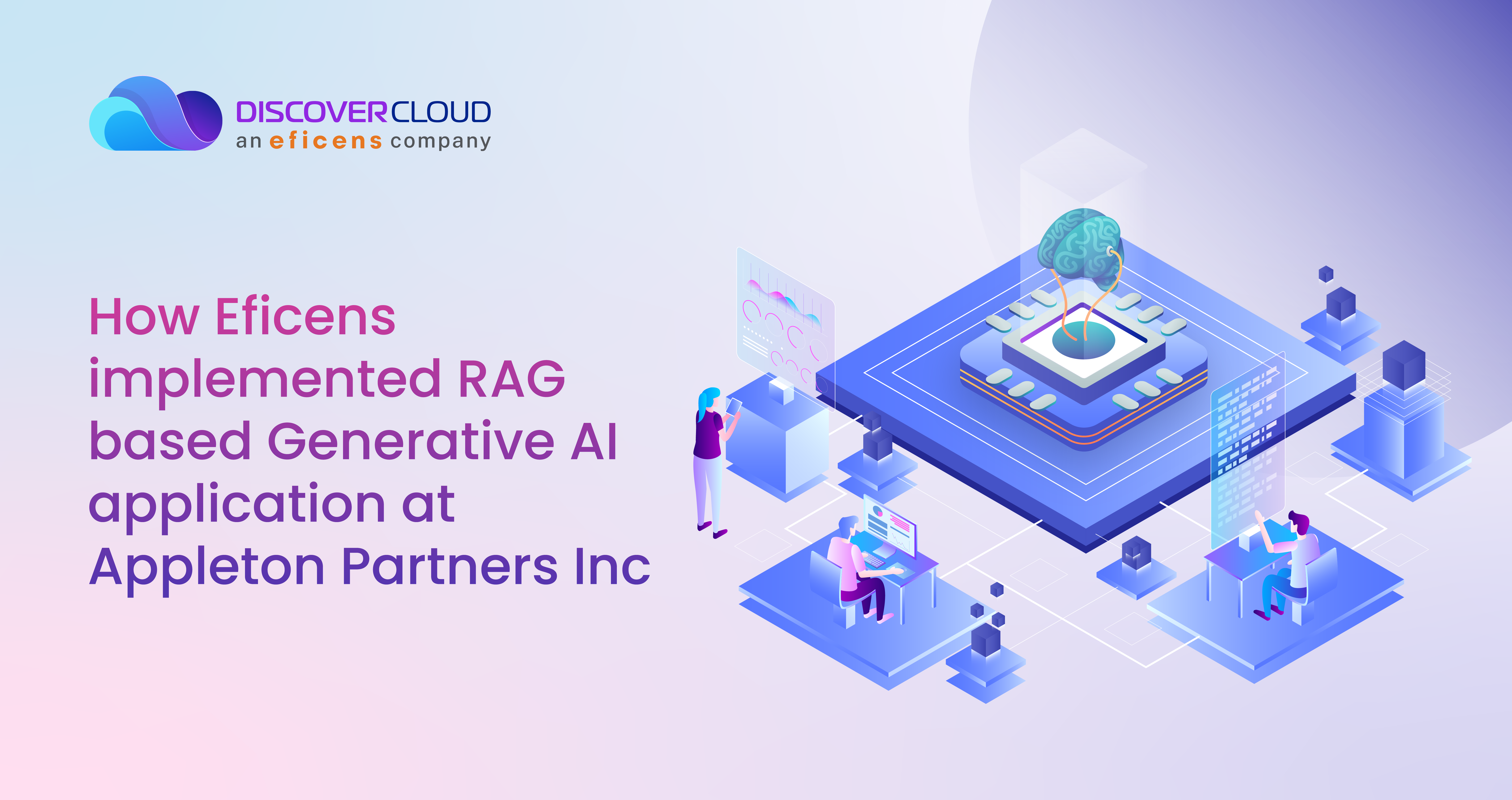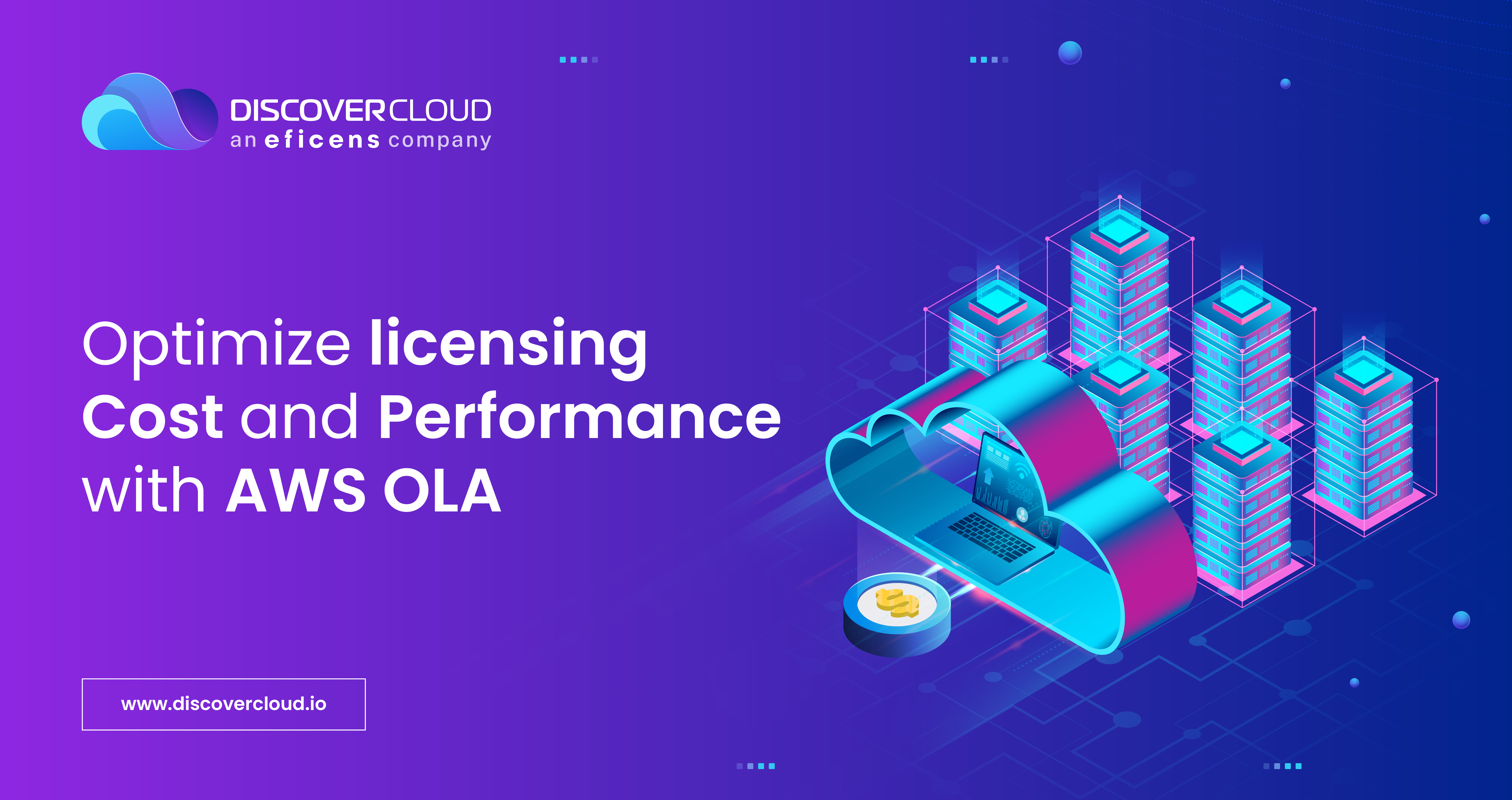Cloud Financial Management (CFM) is a pivotal system that empowers organizations to efficiently manage and maximize their cloud investment returns. CFM integrates strategic planning, governance structures, and real-time access to financial data like reports, payments, payroll, and budgets.
This enhances operational productivity and user experience, ultimately saving costs. The significance of CFM is reflected by the fact that 60% of infrastructure and operations leaders will encounter public cloud cost overruns through 2024 that will negatively impact their budgets, as per a prediction by Gartner.
So, we’ll delve into the key aspects of Cloud Financial Management and the roadmap to its successful implementation to ensure that you can make the most of modern cloud technology without breaking the bank.
That’s not all! We’ll also discuss how you can work with DiscoverCloud and leverage its powerful accelerator to manage your cloud finances effortlessly and affordably. Let’s begin!
Importance of Cloud Financial Management

Cloud Financial Management (CFM) plays a pivotal role in ensuring organizations harness the full potential of their cloud investments, and here is why:
Optimizes spending- It helps to align cloud spending with business goals and outcomes and to create a cost-conscious culture across teams and functions. By planning, budgeting, and governing the cloud costs and usage, organizations can ensure that they are spending efficiently while clearly measuring and communicating the business value of their cloud investments.
Enhances agility, innovation, scalability, and security- By managing and optimizing the cloud costs and value through CFM, organizations can leverage the cloud to respond faster to changing market conditions, deliver new products and services, scale up or down as needed, and protect their data and assets. It is also crucial during the cloud migration or modernization process to help maintain efficiency and direction.
Improved Return on Investment (ROI)- CFM improves the ROI of cloud spend and increases customer satisfaction. By saving and optimizing the cloud costs and performance, organizations can reduce their operational expenses, improve their margins, and deliver better quality and reliability to their customers.
Enhanced Financial Transparency- Cloud Financial Management provides organizations with a clear and detailed view of their cloud expenditures. This transparency allows for better decision-making, ensuring that resources are allocated effectively and wastage is minimized.
Adaptability to Market Dynamics- With CFM, organizations can quickly adapt their cloud strategies based on market trends and demands. This flexibility ensures they remain competitive and can capitalize on new opportunities as they arise.
Streamlined Operations and Reduced Overheads- CFM promotes the efficient use of cloud resources, helping organizations avoid unnecessary costs. By identifying and eliminating redundant processes or underutilized resources, organizations can streamline operations and reduce overheads.
Empowers Informed Decision Making- With a robust CFM system in place, organizations have access to data-driven insights. This empowers them to make informed decisions regarding their cloud investments, ensuring optimal outcomes.
Promotes Collaboration and Accountability- CFM fosters a collaborative environment where different departments work together towards cost optimization. It instills a sense of accountability among teams, ensuring everyone plays their part in managing and optimizing cloud costs.
Despite all its benefits and importance, CFM remains a difficult area for most businesses due to its high complexity and requirement of expertise. The solution is often to work with a seasoned agency like DiscoverCloud, which offers specialized advice and analytical tools that help you make the most of your finances and maximize ROI.
The 4 Key Pillars of Cloud Financial Management

As we discussed, Cloud Financial Management is the process of managing and optimizing the costs and value of cloud services. It involves planning, monitoring, analyzing, and optimizing the cloud spending and usage of an organization. According to AWS, the four key pillars or aspects of CFM to ensure this are-
See- This pillar is about gaining visibility and understanding of the cloud costs and usage. It involves using tools and metrics to track and report cloud spending and consumption patterns across different dimensions, such as services, accounts, regions, projects, teams, etc. This aspect helps to identify the drivers and trends of cloud costs, as well as the opportunities and risks for cost optimization.
With DiscoverCloud’s Trekora, you can get detailed cost visibility at a resource-level, allowing you to see where every dollar from your budget is going. It’s not just about visibility; it’s about achieving actionable insights that can make a real difference to your ROI.
Save- This is about reducing cloud costs and increasing the efficiency and value of cloud services. It includes applying best practices and strategies to optimize the cloud architecture, design, performance, and operations. Some of the common ways to save on cloud costs are: choosing the right pricing model, resizing or terminating unused or underutilized resources, leveraging reserved or spot instances, implementing auto-scaling and load balancing, using storage tiers and data lifecycle policies, etc.
Moreover, an agency like DiscoverCloud that offers the best managed cloud services can greatly ease the burden. At DiscoverCloud, we optimize your cloud architecture and handle the nitty-gritty of everyday cloud management so you can focus on what really matters: growing your business.
Plan- This pillar is about forecasting and budgeting the cloud costs and usage. It entails setting cost targets and goals, creating cost models and scenarios, estimating future cloud demand and capacity, and allocating cloud resources and funds accordingly. Proper planning lets you align the cloud spending with the business objectives and outcomes, as well as avoid surprises and overspending.
DiscoverCloud’s Trekora accelerator can make all the difference here by offering detailed and actionable insights that help you make informed decisions and create plans that are ambitious yet practical.
Run- This pillar is about governing and managing the cloud costs and usage. It involves establishing policies, processes, roles, and responsibilities for Cloud Financial Management. It also involves implementing tools and automation to enforce the policies, monitor compliance, alert the anomalies, and remediate the issues. This helps to ensure accountability and transparency of cloud spending and usage, as well as to foster a culture of cost awareness and optimization.
Once again, you can greatly benefit from the expertise and accelerators offered by DiscoverCloud as they can help you optimize your cloud operations and make informed choices to maintain direction. They also help you detect and correct deviations from your plan timely and empower you to plan into the future, so you are always a step ahead of your competitors!
Cloud Financial Management Implementation

To implement Cloud Financial Management, organizations need to follow a framework that consists of five building blocks: inform, operate, optimize, plan, and govern. These building blocks should be covered chronologically during implementation:
Inform- Provide near real-time visibility and analysis of cloud cost and usage data to support decision-making for topics such as spend dashboards, optimization, spend limits, chargeback, and anomaly detection and response.
Operate- Achieve cost efficiency at scale by applying best practices and tools to optimize cloud resources for cost, speed, and quality. This includes rightsizing, purchasing commitments, spot instances, containerization, serverless computing, and automation.
Optimize- Improve product profitability by correlating cloud costs to business KPIs and value drivers. Optimization involves identifying and removing unutilized or underutilized resources, redundant integrations, and wasteful processes. It also requires driving costs down as a principle without compromising business goals.
Plan- Modernize budgeting, forecasting, and chargeback methods to allow for iterative, innovative, and cost-effective development practices. This includes estimating costs and modeling solutions before building them, setting appropriate budgets and alerts based on historical trends and future projections, and allocating costs accurately to relevant entities based on user-defined methods.
Govern- Establish guardrails and policies to guide permissions and accessibility as related to cost control. This involves consolidating billing accounts for higher discounts and lower administrative overheads, setting granular user permissions based on roles and responsibilities, and enforcing compliance with standards and regulations.
Looks complicated? Don’t worry! As we discussed, DiscoverCloud can make CFM implementation effortless with its vast expertise and powerful accelerator that helps you create and implement a customized and data-driven strategy accurately.
Measuring Cloud Financial Management Results
Once you have implemented CFM, the next natural question is- How can I measure the effectiveness of Cloud Financial Management?
The answer is KPIs. You can measure the effectiveness of Cloud Financial Management accurately and reliably by using such key performance indicators (KPIs) that reflect your business value drivers and objectives:
Cost per unit- This measures the cost efficiency of your cloud resources based on a relevant unit of output, such as transactions, users, requests, etc.
Cost per value- This measures the cost-effectiveness of your cloud resources based on a relevant value metric, such as revenue, profit margin, customer satisfaction, etc.
Cost variance- This measures the deviation of your actual cloud spend from your planned or budgeted spend.
Cost optimization rate- This measures the percentage of your cloud spend that is optimized by applying best practices or tools for rightsizing, purchasing commitments, spot instances, etc.
KPIs can give you an idea about your strengths and weak points, helping you optimize your CFM efforts to optimize cloud performance and cost efficiency. With Trekora, you’ll find that measuring the effectiveness of your CFM strategies is a breeze.
This is because Trekora provides real-time KPIs that are tailored to reflect your specific business needs. And this makes it quick and easy to optimize your cloud performance and cost-efficiency.
Common Cloud Financial Management Challenges
Cloud technology is a complex and dynamic area, and it is natural to face challenges during Cloud Financial Management. Here are some common hurdles you must prepare for while implementing CFM:
Cloud waste- This refers to incurring unnecessary cloud costs due to overprovisioning, idle resources, orphaned resources, suboptimal pricing models, or lack of visibility. It is a very common problem while implementing Cloud Financial Management, which is ironically meant for the exact opposite purpose of cost saving!
Cloud complexity- This is the difficulty of understanding and managing the dynamic, scalable, and sometimes complex cloud environment. This includes dealing with multiple cloud providers or services, different pricing models or discounts, frequent changes or updates in cloud offerings, or usage patterns.
Cloud culture- This refers to the need to change the mindset and behaviors of both finance and technology teams to adopt Cloud Financial Management practices. This requires breaking down silos between teams and functions, fostering collaboration and communication across stakeholders, and promoting financial accountability and ownership among cloud users. And that’s a tough nut to crack!
The Solutions
The good news is that you can easily the challenges during CFM implementation with the right guidance and tools from companies like DiscoverCloud. Some of the solutions to overcome these hurdles and optimize the ROI are:
Cloud FinOps consultants or agencies- These are professional services providers that help organizations to implement or improve their Cloud Financial Management practices. DiscoverCloud offers managed services that take care of the heavy lifting, and our tool Trekora helps you keep track of every cost element. We offer guidance on how to align cloud spending with business value drivers, how to establish governance structures and policies for cost control, and how to leverage best practices and tools for cost optimization.
Cloud cost management & optimization tools- These are software solutions that help organizations to monitor, analyze, report, forecast, budget, allocate, and optimize their cloud costs. They provide visibility into cloud spending patterns and trends, identify opportunities for cost savings or efficiency improvements, and recommend actions or automation for optimization.
Best Practices- By adhering to these proven best practices any IT-enabled businesses can ensure that they are spending wisely on the cloud and maximizing their return on investment-
- Establish a Cloud Budget- Before diving into cloud services, set a clear budget. This will serve as a guideline for expenditures and help in monitoring and controlling costs.
- Regularly Monitor and Analyze Costs- Continuous monitoring of cloud expenses is essential. Regularly review and analyze your cloud bills to identify any unexpected costs or spikes in usage.
- Implement Cost Allocation Tags- Use tags to allocate costs to specific departments, projects, or teams. This helps in tracking which units are consuming resources and aids in accurate chargebacks.
- Optimize Unused or Underutilized Resources- Regularly review your cloud resources. Turn off unused instances, and resize underutilized resources to match the actual demand.
- Leverage Reserved Instances- If you have predictable workloads, consider purchasing reserved instances. They often come at a discounted price compared to on-demand pricing.
- Implement Governance and Policies- Establish clear governance structures and policies for cloud usage. This includes setting up approval workflows for provisioning resources and defining who can spin up new instances.
- Educate and Train Teams- Ensure that your teams are well-informed about cloud costs and best practices. Regular training sessions can help them make cost-effective decisions.
- Forecast Future Costs- Use historical data to predict future cloud expenses. This will help in budget planning and ensure that there are no unexpected costs.
- Optimize Data Transfer Costs- Data transfer, especially across regions or out of the cloud, can be costly. Optimize data transfers by keeping data in the same region as your services and minimizing data egress.
- Review and Optimize Storage- Regularly review your storage needs. Delete old snapshots, optimize databases, and ensure that you’re using the most cost-effective storage class for your needs.
- Automate Cost Optimization- Implement automation tools that can help in rightsizing resources, shutting down unused instances, and alerting when there are cost overruns.
- Stay Updated with Pricing Models- Cloud providers frequently update their pricing models. Stay informed about these changes and adjust your strategies accordingly to benefit from cost savings.
- Establish a Cloud Center of Excellence (CCoE)- Create a dedicated team or group that focuses on cloud best practices, governance, and optimization.
We know all these tips look a little elaborate, and that’s why our experts are here to help you at DiscoverCloud.
Why Go For DiscoverCloud?
There are a plethora of Cloud tools and agencies, and then there’s DiscoverCloud! What sets us apart as your best partner for CFM is that we are an active partner committed to ensuring that your businesses harness the full potential of the cloud affordably. Not only do we provide comprehensive managed FinOps services that align with the best practices outlined above, but our unique accelerator, Trekora, offers unparalleled insights into your cloud expenditure at a granular, resource-level. And that’s just scratching the surface! Here’s more about what we offer:
Holistic Approach- DiscoverCloud doesn’t just focus on cost optimization. We look at the bigger picture, ensuring that businesses not only save money but also derive maximum value from their cloud investments. Our approach is business-centric, ensuring that the solutions we provide are tailored to meet the precise needs of companies undergoing digital transformation.
Unique Accelerators- Our robust accelerators – SAP Assist, Traverse, and Trekora – are designed to make cloud services more efficient, effective, and accessible. Let’s have a look at the comprehensive benefits and Finops features of Trekora, our cloud cost optimizer-
- Scrutinizes cloud expenditure and offers cost-saving recommendations and transparent visibility.
- Uncover real-time cloud spend insights including overlooked costs like data transfer fees, S3 API costs, etc. This helps you jumpstart informed cloud management.
- Optimizes commercial, architectural, and operational facets to maximize your ROI.
- Helps you create tailored strategies and enhance savings while ensuring ongoing improvement.
- Helps you align commerce, deploy tech, and allocate smartly so you can stay agile and efficient on your financial cloud journey.
Expertise and Experience- DiscoverCloud’s blend of cloud expertise and a proven operational track record sets us apart. Our team has vast experience in business strategy, operations, and implementation, ensuring that our clients receive the best advice and solutions.
Strategic Partnerships- Our collaborations with leading cloud providers like AWS, GCP, and Azure mean that we have access to cutting-edge technologies, specialized training, and enhanced support, and we’re always at the forefront of the latest developments in the cloud industry. As a result of these partnerships, we bring the benefits from the strengths and advancements of the tech behemoths to our clients in a personalized package.
De-Risking Digital Transformation- In a rapidly evolving digital landscape, businesses face numerous challenges. DiscoverCloud acts as a strategic co-pilot, helping businesses navigate the complexities of cloud management. Our holistic approach de-risks financial, operational, and technological challenges, ensuring accelerated business outcomes.
Focus on Innovation- More than just managing the existing cloud ecosystem, DiscoverCloud enables businesses to implement data and AI strategies, build modern applications, and conduct complex SAP migrations. This ensures that businesses are always ahead of the curve.
Don’t take our word for it! Reach out to DiscoverCloud today and see how we can take your cloud financial management to the next level. Remember to also check out our customer testimonials to learn how we have helped diverse clients. For instance, here’s what our client Sai Deep from Innvendt has to say about us-
“Trekora is an absolute game-changer. Thanks to its incredible analysis and expert recommendations, we slashed our AWS costs effortlessly. With Eficens managed services team, the entire process was smooth, and the savings were immediate. Trekora is the real deal – highly recommended!”
Summing Up
Cloud Financial Management is crucial to achieving the full benefits of cloud adoption and aligning cloud spending with business goals and outcomes. In this guide, we saw that it can be implemented systematically by following a framework that consists of five building blocks: inform, operate, optimize, plan, and govern. However, it does involve some challenges such as cloud waste, cloud complexity, and cloud culture implementation.
However, these challenges can be easily overcome and the ROI can be optimized by using cloud cost management & optimization tools or cloud FinOps consultants like DiscoverCloud. Why struggle with cloud costs when you can partner with DiscoverCloud for managed FinOps?
Reach out to us today to optimize your cloud expenditures effectively and sustainably, and enjoy an unprecedented ROI. All the best!




